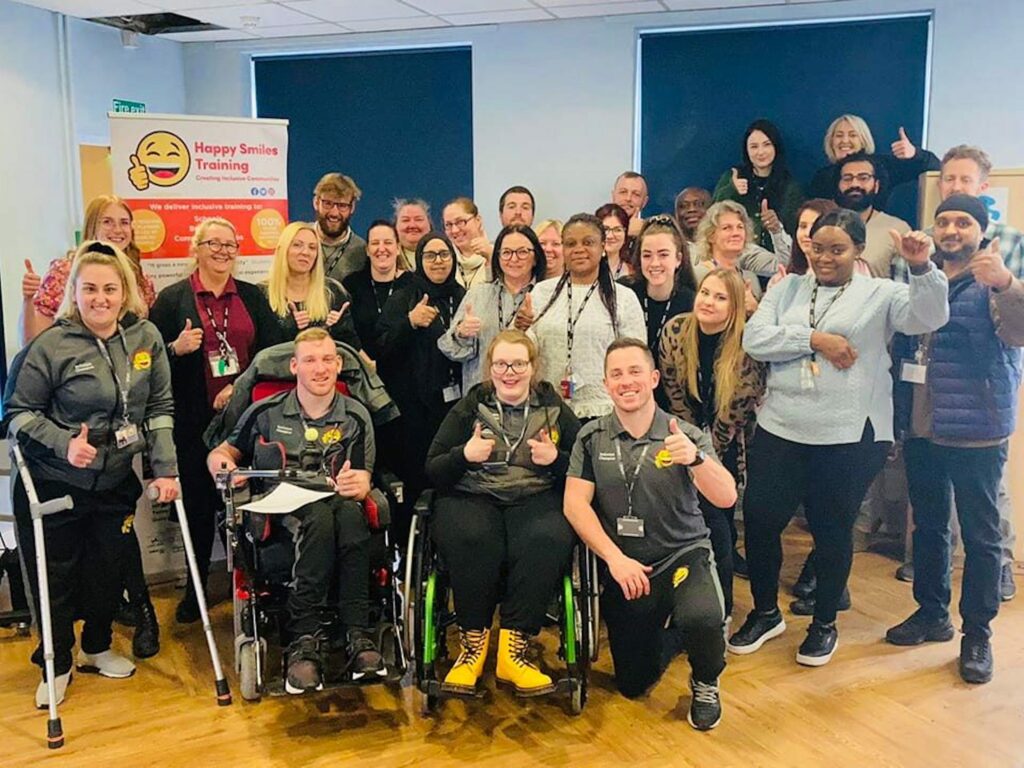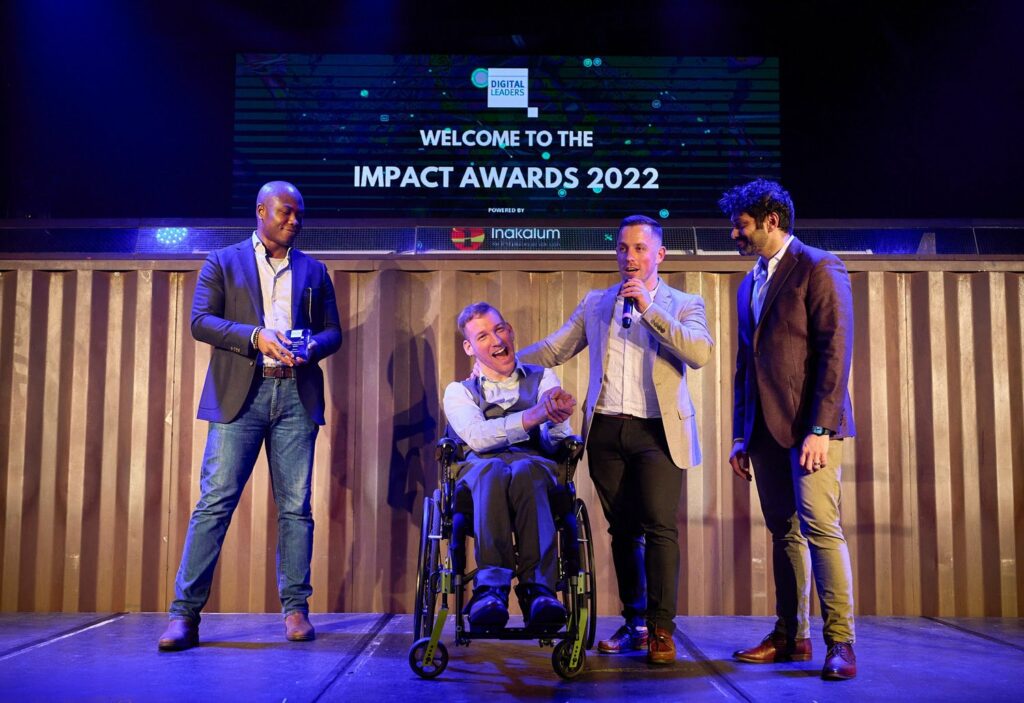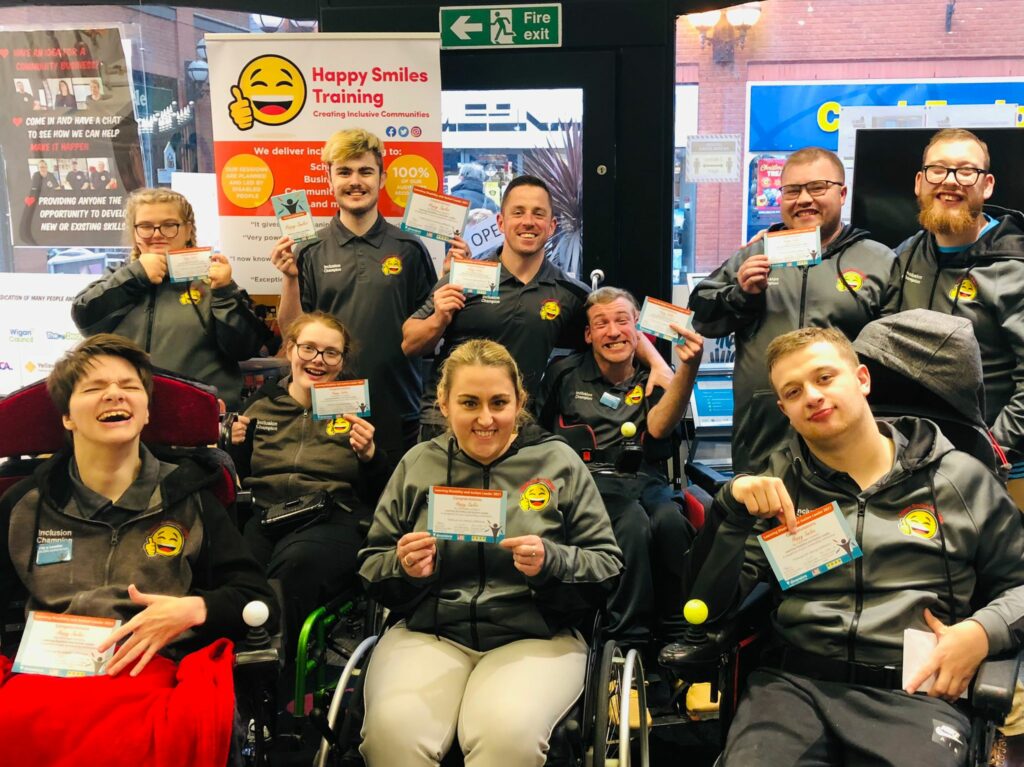Disabled people face widespread stigma based on deeply rooted negative perceptions about disability. Eliminating the discrimination that is being imposed on them is a human rights imperative.
Healthcare Channel has reached out to Alex Winstanley, Co-Founder and Managing Director of Happy Smiles Training, to share his insights about the social inclusion and empowerment of disabled people.
Alex Winstanley is an award-winning social entrepreneur and best-selling author with international experience in working with children and young people.
Years of experience as a teacher, carer and SENCo led him to set up the not-for-profit organisation to empower disabled young adults to create positive social change by delivering awareness training across schools, community groups, businesses and more.
In this interview, Alex discusses his experience in improving social inclusion and empowering disabled people to create positive social change on the path to employment.
HCC: What has driven you to set up the Happy Smiles Training?
Alex: Happy Smiles was co-founded by myself and a disabled friend, Haydn, after seeing the systemic undervaluing and stigma attached to disabled people. After a young girl asked her dad ‘why is that man in a wheelchair?’ when referring to Haydn, her dad couldn’t answer the question and walked away.
This wasn’t his fault, he simply didn’t know how to answer the question. We knew we had to be the ones to answer such questions.
Inspired by a previous positive social media campaign, whilst Haydn had been in hospital for nearly 12 months, where the public had posted pictures of their ‘happy smiles’ to keep Haydn’s spirits high, we founded the Happy Smiles Blog. Through this, we shared videos of different disabled friends telling their stories. This quickly grew, reaching thousands of people, which is when we took our work further and began delivering training to local schools and community groups.
-

-
Happy Smiles Training team
Since then, we have delivered training to over 7500 children, young people and adults in schools, community groups, universities and businesses across the North West. All of our work is led by our team of disabled trainers who plan and deliver our work and we have been recognised by multiple national awards.
HCC: Happy Smiles Training just celebrated its 3rd year anniversary. What do you consider to be your greatest legacy to the community?
Alex: Just the fact that we have made it to this point, impacting thousands of people and growing our team to include 14 local disabled people delivering our work, is a huge achievement – particularly with the impact of Covid-19 only 6 months into setting up!
We are particularly extremely proud though that we have been included on this year’s Disability Power 100 list – a list of the most influential disabled people and organisations across the UK. To be recognised on such a scale for our work is pretty amazing.
-

-
Digital Leaders Impact Award
HCC: What potential for growth do you see in increasing awareness and the social inclusion of disabled persons, especially after being named the Greater Manchester Community Business of the Year?
Alex: It was an honour to be named Greater Manchester Community Business of the Year – particularly given the amazing work in communities across GM that we know about.
We want to use the platform following the win to increase the awareness of our work for any school, community group or businesses looking for inclusion and diversity-based training, whilst showing disabled young people and their families that there is a pathway to employment for them through organisations like ours that celebrate the power of their lived experiences. We want to show that disabled people don’t only have to attend traditional day services if that’s not what they want to do.
HCC: How do you keep yourself and your team motivated in the face of problems?
Alex: The challenges since setting up our organisation have been endless. Covid-19 aside, there are daily challenges that disabled people and their families face, due to ingrained social attitudes and expectations. We are really trying to face those challenges head and create better opportunities for disabled people to have a positive impact on their community.
Throughout that time, our team have supported each other’s well-being and we now have weekly meetings that focus on just that, on top of a weekly women’s-led support group, set up by a group of disabled women in our team.
Disabled people are often very resilient due to the unnecessary and unfair daily challenges they have to face, however, this doesn’t mean that they don’t also need support and I hope that we are able to provide that support to our growing team, at no cost to them, to ensure that they can be at their best.
Members of our team still feel they are at the bottom of the pecking order when it comes to being seen and listened to, however, we hope our work continues to change that.
HCC: What does the ideal future for the disability community look like for you moving forward?
Alex: We want to see disabled people being valued, heard and celebrated for similar work to ours. This isn’t being celebrated simply for having a health condition or impairment, but if an individual wants to have access to employment or create positive change, support should be put in place to do so, without question.
We plan to continue our growth and be at the forefront of shouting out about the needs and wishes of disabled people.
Long-term, we hope that our work will eventually put us out of business, as society as a whole will hopefully be better equipped to fully understand and celebrate the needs and wishes of all disabled people, just as they would for any non-disabled person.
-

-
Happy Smiles team photo with Learning Disability & Autism Leaders Awards 2021
Know more about their work at https://www.happysmilestraining.co.uk
Also read: Zed Tintor of LGBTIQ+ Health Australia on addressing the barriers in the healthcare sector.
























